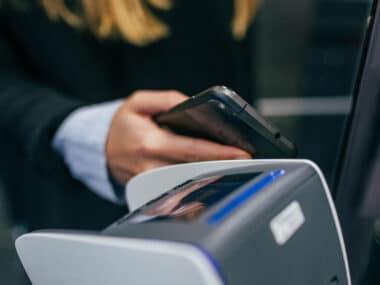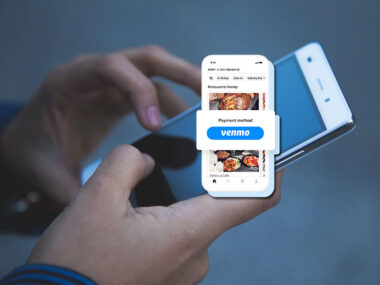There is plenty of practical advice out there regarding ways to save money. Creating a budget, knowing when to treat yourself and when to be more financially guarded, managing debt, and cautiously approaching debt and financing are all solid tips for cultivating savings. For the more ambitious penny-pincher, however, there are some more unusual steps one can take.
Table of Contents
1. Leftover Soup
Groceries are a major part of everyone’s budget, and there are countless ways to reduce grocery costs. One answer is leftover soup. Soup has a very loose definition. It is essentially any food that is vaguely liquid. Therefore, almost any food has strong soup-potential. This also means that any food that is about to expire in the refrigerator isn’t just potential garbage — it’s potential soup. Save money by using leftover or nearly expired items to make a soup, stew, chowder, or goulash.
2. See if the State Owes You Money
Every year, billions of dollars of cash, property, and benefits go unclaimed. This unclaimed property is held in trust by the government until the owner comes forward to claim it. These unclaimed resources can accrue for a variety of reasons, so it is difficult to know whether someone has unclaimed assets without searching unclaimed funds databases. Some typical categories of unclaimed funds are refunds, savings and checking accounts, and contents of safe deposit boxes. When the company in charge of the property or payment (like a bank) loses contact with the owner for an extended period of time, they are obligated to notify the government and transfer the assets into government holding.
3. Get a Prescription
Many people purchase store-bought medication without a second thought. Remedies like allergy medication, acid reducers, and vitamins aren’t the type of thing that would normally seem to warrant anyone signing anything. However, it is possible to save a lot of money for these drugs just by speaking up at a physical. With a prescription for the same medicine, insurance will likely pick up (an often substantial) part of the bill.
4. Scour Garages, Basements, Etc.
Mom’s old storage unit or grandpa’s forgotten basement are often rife with untapped financial potential. Ask to organize it for them. They will be pleased, and the process may turn up something valuable — or at least some canned food.
5. Unfollow Old Friends
Oftentimes, for some reason, people turn to hocking mediocre beauty products or peddling pyramid schemes as their means of living — and somehow this immediately becomes everyone else’s problem. Almost everyone has had that annoying friend on Facebook trying to sell them gimmicky junk. Delete them before pity prevails.
6. Become a Product Tester
Several brands seek out product testers, and will send free samples to people who volunteer for the task. Such arrangements are especially common in the beauty industry. Additionally, it is easy to get free samples at beauty counters. Cutting down on the cost of makeup and skincare products will result in significant savings for beauty enthusiasts.
7. Give Your Friend Your Wallet
Putting a friend in charge of holding your physical cash or cards can be a great way to avoid frivolous and/or impulsive spending. This is especially helpful advice in situations where judgment may be impaired. Furthermore, it is best to avoid credit card use during a night out on the town. There is no need to fuel credit card debt over a frivolous outing.
8. Apps for Saving Money
There is an abundance of apps created solely for the purpose of saving money. Reward apps and coupon apps, for example, are both a means of cutting costs with minimal effort involved.
9. Pick an Inconvenient Bank
Choosing a bank that is farther away means (in theory) that one will be encouraged to wait until they have a serious financial need before making the trip. This, of course, may not work unless they also give up online banking.
10. Walk to the Store
In a similar vein, make a commitment to only walk to the store. By choosing to only walk to the store, the individual will only go when they really need to, and will only buy what they absolutely require. It is an especially useful deterrent for vices like cigarettes.
11. Don’t Use Coin-Counting Machines
Commercial coin-counting machines may seem extremely convenient, and the fee may seem small. However, fees by percentage like those seriously add up. Exchange coins at a bank or credit union instead to avoid the extra expense.
12. Date Someone Frugal/Don’t Date Someone With Financial Problems
Significant others need to work together as a unit, and an issue with half of the unit becomes a problem with the whole system. If one partner is financially irresponsible, it will negatively impact the other. In fact, it may even start to rub off and begin to affect their behavior as well.
13. Donate
Plasma, hair, bone marrow, ova, and sperm can all be sold. It will be necessary to do independent research about available donation centers in the area as well as donation criteria.
14. Find Freelance Work
There are many avenues for finding freelance work. In fact, entire websites like Upwork and Fiverr are built around that undertaking, offering a wide array of freelance options across a multitude of fields. This is a great way to simultaneously make some extra money and build a portfolio.
15. Be Nice to Service Industry Workers
Make friends in the food-service and/or retail industry. They will likely have some behind-the-scenes information on things like sales, company policy, and marketing tricks. This knowledge has the potential to give you a serious leg-up over other customers in terms of getting the most out of your money.
Practical Budgeting Is Still Best
That all being said, while these more unusual tips may be helpful in supplementing an income, they are not a good basis on which to build financial security. These tips are no replacement for basic, tried-and-true advice like setting up a savings account, paying off debt, and carefully monitoring personal financial status. Foundational budgeting knowledge and skills are still vital, in this regard.
Image Source: https://depositphotos.com/





